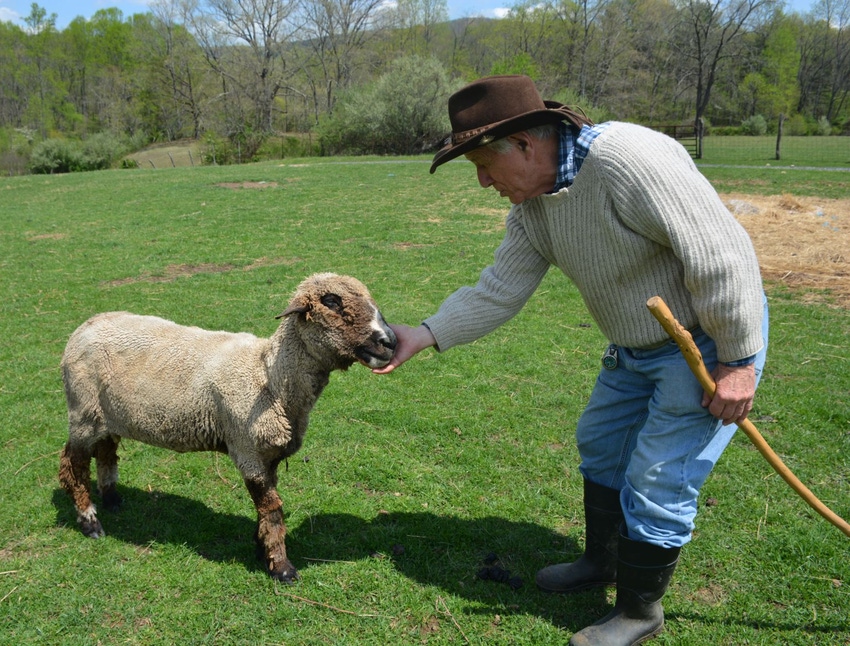
For all of the black sheep out there, there is hope. Today, the wool from black sheep is in great demand from the fashion industry.
“We got the term black sheep of the family because for hundreds of years when a black lamb was born, they were sold for meat because the commercial market couldn’t die black wool. The black sheep was the one you got rid of,” explains Francis Chester, who has been shepherd in Augusta Springs, Va., for 50 years.
“Black sheep are great. I take the black wool and mix it with white wool and make beautiful yarn from it: light grey, medium gray, dark gray, light tweed, medium tweed and dark tweed. You don’t have to dye it and you can make beautiful garments from black wool,” he says.
Because of growing demand for black wool from New York City’s garment district, Chester has a black ram and is building up his herd of black sheep to meet the need. Chester also likes to point out that sheep and people really aren’t all that different. It’s safe to say that just as black sheep have great value, the black sheep of the family has great value too.
Chester has tended sheep, practiced law and run a wool yarn and products business in Virginia since June 10, 1968 and would like to see the sheep numbers grow in the eastern United States. To encourage farmers to try their hand at becoming shepherds, Chester and his family established the “Let’s Grow Sheep Together” program where they will pay shepherds $3 per pound for their wool, which Chester says is the highest price offered in the country.
“The population of sheep in the United States has declined from 54 million in 1943 to 5.2 million today. However, the world sheep population has grown from 1 billion to 1.1 billion, with most of the increase coming from meat breeds.”
With a growing interest in natural things, Chester is hopeful that more farmers will produce more wool in the United State. He believes demand for wool and other natural fibers will continue to grow. That’s good news, even for black sheep.
About the Author(s)
You May Also Like






